Football NSW referees quit due to abuse from players, coaches and spectators
Senior and junior referees are fed up with copping abuse from players, coaches and spectators on the field, leading to severe shortages. See why they’re blowing their final whistle.
Coffs Harbour
Don't miss out on the headlines from Coffs Harbour. Followed categories will be added to My News.
Referees are calling it quits after copping abuse from players, coaches and spectators, leading to shortages across NSW.
Two senior referees left at the end of last season, while junior referees are reporting abuse “almost every week” in the Northern NSW football league which runs across the Mid-North Coast.
Several under-14 and younger grade Northern NSW football games have been played without match officials, after reports of sexism and threats made to officials.
In a letter addressed to all clubs, Football Mid North Coast said in July that on one weekend 50 of the competition’s 100 referees were unavailable.
While much of this was attributed to Covid and injuries, technical referee director Gregg Macdonald was quick to note that abuse is a major factor.
“Recent weekends have provided evidence of the most significant reason why there is a reluctance for people to step forward and officiate,” the email said.
“The instances of verbal abuse, disgraceful language, physical taunts and violent acts on the field of play and examples of lack of respect toward match officials has seen several referees opt out of officiating.”
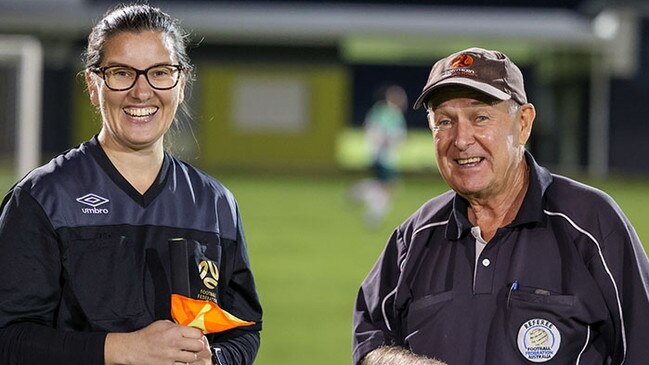
Lee Jenkins, 38, has been refereeing for just two years, but said she’s already witnessed taunting and sexism.
She said it leads to second guessing and lowered confidence, impacting judgment and making you fearful.
“You’re under the microscope. Every error gets picked up,” Ms Jenkins said.
She noted the “unfortunately commonality” that shortages are meaning centre officials are unable to be supported by assistant referees.
In an under-12 fixture, Ms Jenkins was mocked for being a woman by a coach.
“The abuse and dissent is definitely a shock,” she said.
She later added: “Sexism is prevalent in the game and it bleeds into other facets of life,” she said.
Ms Jenkins n oted that coaches are often the root of the problem.
“When kids see how their coaches abuse female referees, they might take it home. They’re meant to be role models,” she said.
Martin Gadd, 48, has been making calls since he was 14 but is seeing many junior referees walk out on the job.
“Abuse is the number one cause for people leaving. It’s a real shame,” Mr Gadd said.
In one game, Gadd witnessed an under-13 team coach threaten a referee, leading to a suspension.
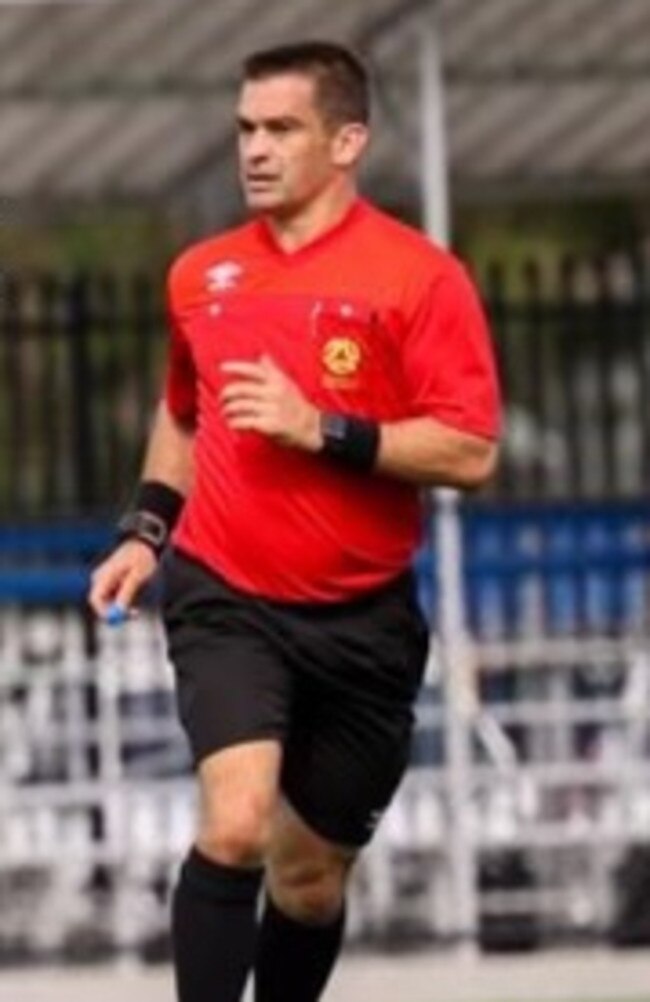
“Coaches are supposed to be leaders,” he said.
He noted spectators are part of the issue: ganging up to bully match officials.
A larger focus on respect is being imparted on to players, as well as harsher sanctions and more official reporting.
In 2022, Northern NSW Football implemented the green shirt program – a system where first year referees wore a shirt to denote they were still in training.
With football fixtures on each day of the week, Mr Gadd said there aren’t enough referees to do an effective job consistently.
“Some referees do seven matches a day. They get exhausted and it's hard to make decisions,” he said.
Mr Gadd believes clubs have a responsibility to recruit for referees and coaches should engage in referee courses to be up-to-date with the latest rules.
“We only had one club turning up when we offered a refereeing workshop to run through the laws. That’s not enough commitment,” he said.
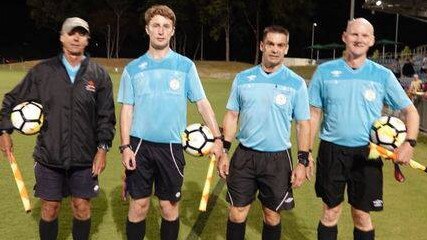
Ally Gadd plays women’s first grade football and tried refereeing when she was 14, but said the abuse drove her away.
“I was a nervous. Having older women yelling at me every time a call didn’t go their way made it hard to want to continue,” Ms Gadd said.
As a young girl, she said she felt scared – quitting shortly after.
Northern NSW Football referee development officer Gregg Mcdonald said widespread education needs to implemented to raise awareness.
“We’ve had another senior referee leave this week due to abuse,” Mr Mcdonald said.
He noted that most referees aren’t paid much, and a focus on referee reaction will be assessed over the pre-season.
“Referees are ultimately volunteers who do it because they love the game,” he said.
Last week he said an under-11 coach violently taunted a 14-year-old female referee leading to tears.
“All the crap from spectators and players and it needs to go,” Mr Mcdonald said.
He said Football NSW’s goal is to provide better incentives for referees to stick around, such as a safe, inclusive environment.
“The culture is not acceptable as it is.”
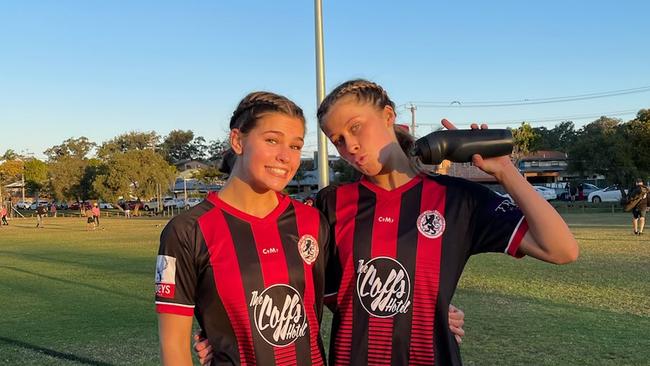
The referee shortage is not limited to northern NSW, with Sydney’s northern beaches also seeing a drastic shortage.
Covid cancellations and abuse from players and the sidelines has led to a drastic shortage of soccer referees on the northern beaches.
On the south coast junior ranks of referees are still strong - with it being a great way to keep fit and earn some “pocket money” according to Football South Coast CEO Ann-Marie Balliana.
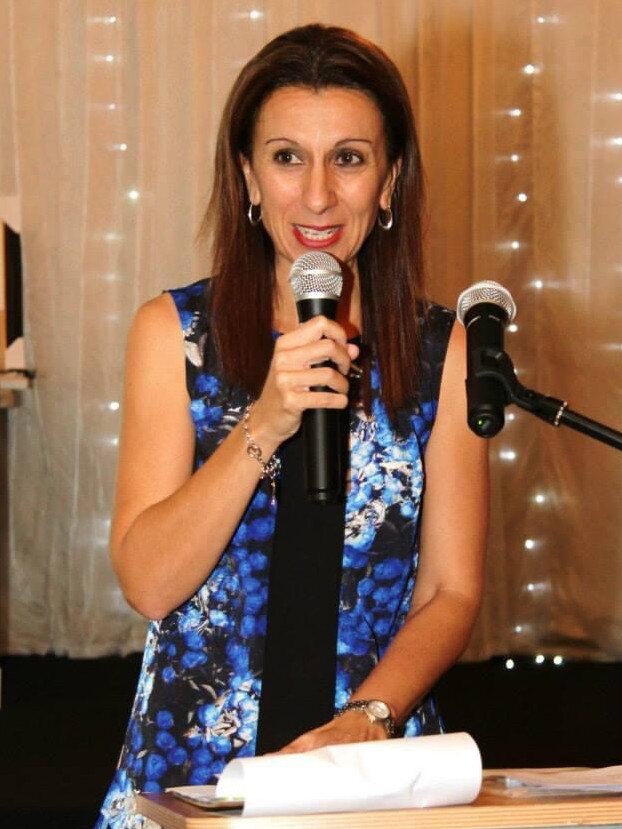
However, she said numbers were thin in senior ranks.
“In a recent survey we sent to referees that have not re-registered there was one third of survey participants that identified abuse as being a key contributor” she said.
“With the growth of the game, and as the largest participation sport, referee shortages are becoming more of a challenge.
“This year in particular we have also seen increased issues around spectator abuse and we are looking at ways to manage this through respect campaigns and working with our clubs on ways to manage this to protect our referees, in particular the younger referees whom we are progressing through pathways to senior football.”
In June, The Manly Daily reported the local junior and senior competitions have “lost” about 100 referees to the game, according to the Manly Warringah Football Referees Association (MWFRA).
“Aside from COVID-19, we lose referees each year because they have been abused by players, team officials and spectators,” said MWFRA president Toby Williams
And in Sydney’s west, Blacktown District Soccer Football Association chairman Bill Owen said years of Covid lockdowns and poor weather had boiled over on the pitch.
“It’s huge,’’ he said of referee abuse.
“I think it’s just frustration – we’ve had three years of Covid, wet weather, floods.
“I’m no way condoning violent behaviour but I just think that these aren’t normal times we’re living in. They’re quite surreal for people.’’
And in Sydney’s southwest, Canterbury District Soccer Football Association referee Frieda Maher took up refereeing after witnessing her son cop abuse as a 15-year-old linesman four years ago.
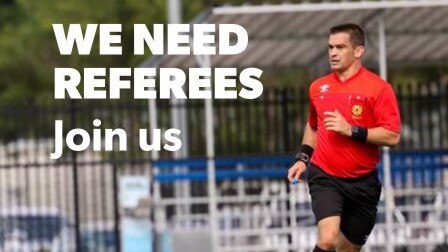
Ms Maher conceded that while she incurred less verbal abuse than her male counterparts, she was not immune to the wrath of short-fused spectators, parents and players who, “apart from being spectacularly wrong’’ are “really annoying”.
“You just get people shouting at you about your decisions,’’ she said.
“People don’t understand the rules.’’
Other game officials have cited inept referees who do not have adequate training for eliciting abuse.
“There’s absolutely a range of capabilities in the referee ranks but I actually think that should neither be here nor there,’’ Ms Maher said.
“We’re playing football – it’s not going to be professional FIFA referees doing it. We’re going to make mistakes. The players make plenty of mistakes.
“It actually infuriates me. Even really good international referees get abused – you can be professional and get abused.
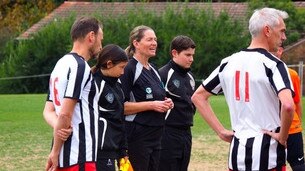
“To get it right every time, I find it bizarre. The magnitude of players’ mistakes is vast. Why is it possible referees can’t make these mistakes?
“I go to training once a week, I referee multiple times on the weekend but I will make mistakes.’’
The 52-year-old has taken on the role for four years but it’s common for referees to give up sooner, leading to a “massive’’ turnover rate because of the abuse.
“Lots of young kids give it a go and realise they’re not cut out for it,’’ she said.
She agreed that abuse had escalated since the pandemic when reactions became more “disproportionate”.
A Football NSW spokesman said retention of referees was an ongoing issue.
“Like many sports we face challenges with the behaviour of a minority of people that don’t behave appropriately towards our referees,” he said.
“Football NSW proactively discourages bad behaviour across its community through ongoing communication and engagement with key stakeholders.
The Don’t Cross the Line document provides Associations and Clubs a guide with step-by-step initiatives to help prevent poor behaviour, actions to be taken when poor behaviour occurs and recommended procedures and sanctions to ensure appropriate action is taken within the parameters of community football bodies.
“Football NSW also takes a zero-tolerance approach to all forms of misconduct and verbal abuse towards referees.”
He said Football NSW is actively seeking and recruiting new members regularly via the introduction of special free courses across all associations encouraging people to join in at grassroots level.




